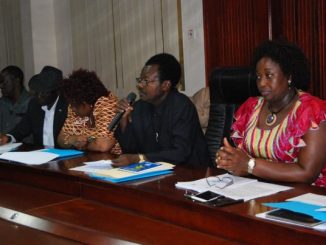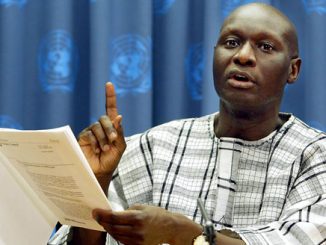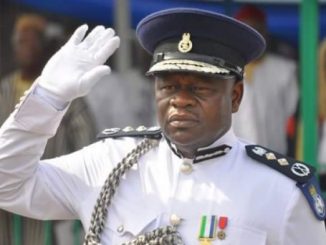
*Mallam O. Urges: Extinguish British Colonial Mentality in Politics — Replace “The Opposition” with “The Checkers”*
Bongolistically,
Mallam O.
*The British Colonial Influence*
The term *“opposition”* has its roots in the *British parliamentary system*, which many former British colonies and other democratic nations have adopted.
*“The Opposition”* originated as a way to describe the *political parties not in power* that held the role of questioning and scrutinising the policies and actions of the ruling party. The idea was to ensure checks and balances in governance by maintaining an adversarial but necessary relationship between those in government and those outside of it.
Historically, the term *“opposition”* became entrenched as it aligned with the democratic principle of holding the ruling government accountable. However, over time, *the term has also gained a negative connotation*. It often leads to a reflexive posture of disagreement, where *the largest opposition party feels obligated to resist or counter government initiatives, even those that could be beneficial to the populace*.
*The Issue in Sierra Leone*
In Sierra Leone, as in many democratic nations, political discourse has often been framed around the term *“opposition”* to describe parties that are not in government. While this term was originally intended to reflect the necessary role of holding the government accountable, over time, as *I said before during an interview at Radio Democracy 98.1*, it has developed a negative connotation. *The word “opposition” implies a confrontational stance, as if parties outside of government must always resist, challenge, or block government initiatives, regardless of their merits*.
This adversarial dynamic can hinder progress and prevent meaningful collaboration between political entities for the benefit of the nation.
*Reiterating My Proposal: Use “The Checkers”*
To encourage a more cooperative and productive political environment, I propose the term *“The Checkers”* to describe parties not in government. This new designation shifts the focus away from opposition for its own sake and towards constructive participation in national development. *“The Checkers”* would represent all non-government parties, emphasising their role as checkers of government business and contributors to progress rather than critics by default.
*“The Checkers”* simply represents a new way of identifying the collective role of parties not in government. It captures their responsibility to fearlessly but constructively check government business and engage in policy discussions, offer alternatives, and *openly support initiatives that benefit the people*, regardless of who proposes them.
*The largest party not in government becomes “The Lead Checker”*
Within *“The Checkers”*, it is natural that the largest party would take on a more significant role. For this party, I suggest the name *“Lead Checker”*. This term positions the largest party as the leading force within *“The Checkers”*, helping shape the group’s direction and fostering constructive dialogue with the government.
*“The Lead Checker”* would serve as a voice for those outside government, promoting policies that drive national development while maintaining a collaborative spirit. The name emphasises leadership through progress rather than confrontation, setting an example for other parties in the group.
*Benefits for the Party in Government*
The government, recognising *“The Checkers”* as a group focused on constructive engagement *rather than opposition for opposition’s sake*, would likely view them more favourably. Moreover, when the government’s proposals are critiqued or even rejected by *“The Checkers”*, the ruling party would be more reflective and introspective about its policies. Knowing that criticism comes from a place of progress rather than mere political competition, the government would be encouraged to refine and improve its proposals in the best interest of the nation. This dynamic would lead to better policies overall, benefiting the public and advancing national development.
*Conclusion*
By adopting *“The Checkers”* as a term for parties outside of government, Sierra Leone can move towards a more positive and cooperative political atmosphere. This change would reduce the adversarial nature of political engagement and encourage collaboration between government and non-government parties. With *“The Lead Checker”* leading the way, *“The Checkers”* would work to ensure that the best ideas are supported, regardless of their source, with the ultimate goal of improving the lives of Sierra Leoneans.
This shift in terminology would foster a sense of unity and shared purpose among all political players, emphasising progress over opposition and ensuring that *Sierra Leone’s development remains the central focus.*
Think about it; it might not make sense to you immediately 🙋🏾♂️
https://whatsapp.com/channel/0029VaMPOUYDjiOg30lohF1m/224




Leave a Reply